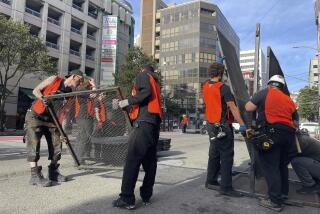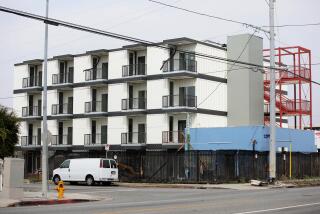U.S. Cities Seen Learning From Overseas
- Share via
ISTANBUL, Turkey — Interaction with cities around the world can help American mayors find solutions to urban problems ranging from homelessness to health care, said U.S. delegates to the U.N. Habitat II summit, which wound up its deliberations here Saturday.
The two-week summit, which brought together representatives from 171 countries, adopted a declaration endorsing equal access to shelter, health care, food, water and education and urging special attention to groups such as women and the disabled.
“Problems ripple out beyond cities to become legitimate world problems,” said U.S. delegation head Henry G. Cisneros, the secretary of Housing and Urban Development. “When people do get together and talk about problems, they make progress. Nobody has come up with a better mechanism [than conferences] for the world to get together and reach consensus.”
Baltimore Mayor Kurt Schmoke, who also attended the summit, recalled his surprise in 1987 when he realized that his city could learn from a humanitarian program to immunize schoolchildren in Kenya.
“There is a sense of denial that some of our cities can be compared to the Third World,” Schmoke said.
Countries attending the conference held up examples of municipal programs that could serve as models for cities around the world. The 100 examples cited by the U.S. included three California projects: a program to support homeless families run by Beyond Shelter in Los Angeles, housing scholarships provided by the city of Fremont and a San Francisco initiative to finance affordable housing.
The U.S. spent $1.3 million on the conference. Turkey, the host country, spent about $70 million. The U.N. contributed $1 million.
More to Read
Sign up for Essential California
The most important California stories and recommendations in your inbox every morning.
You may occasionally receive promotional content from the Los Angeles Times.













